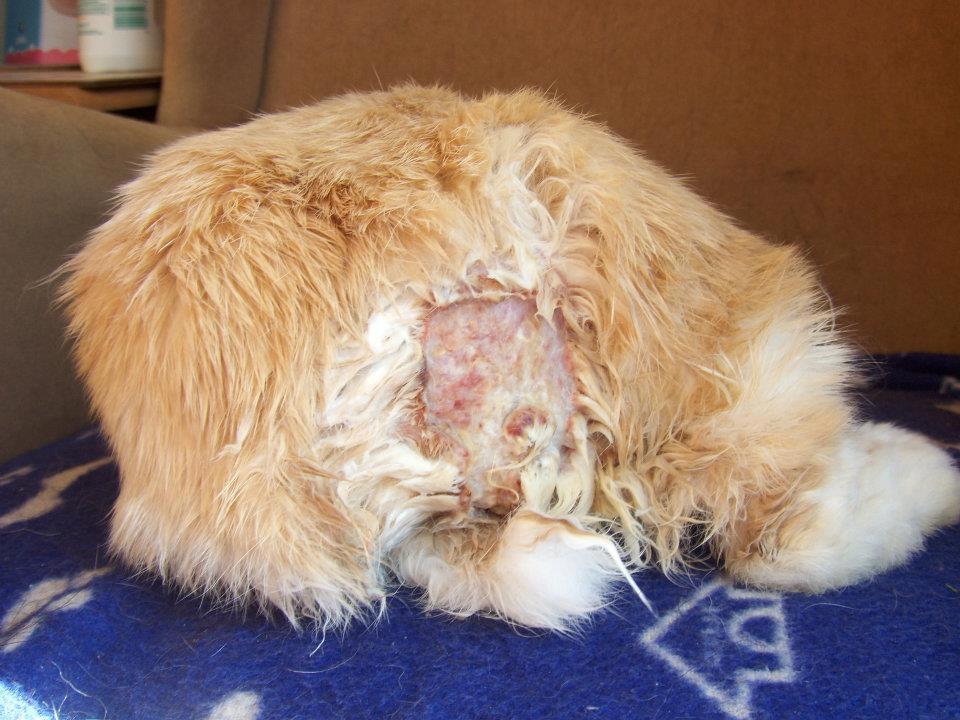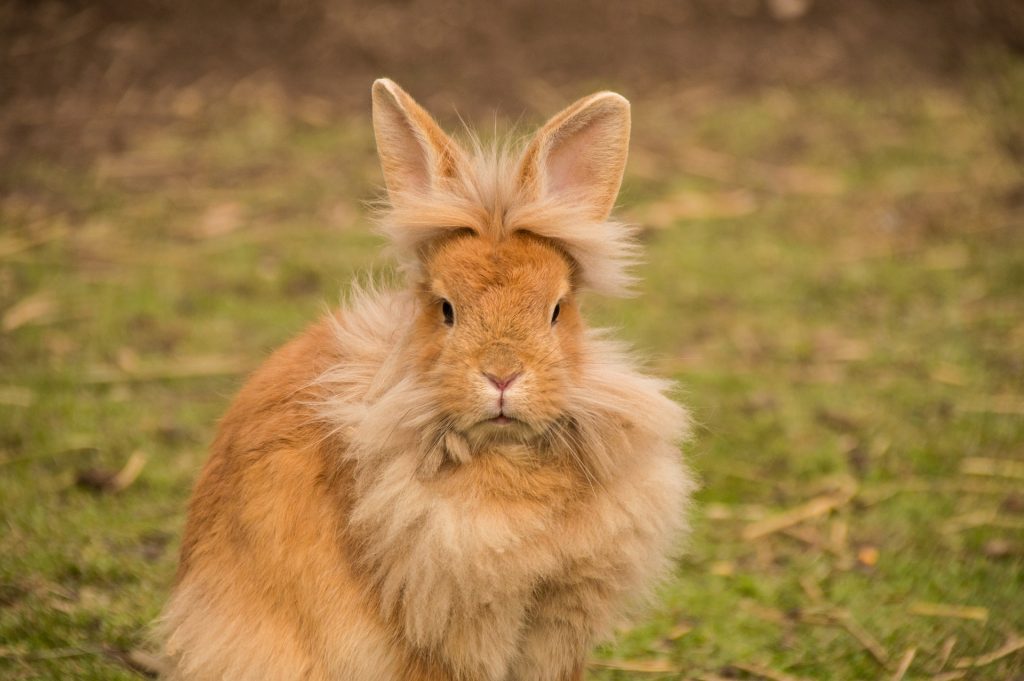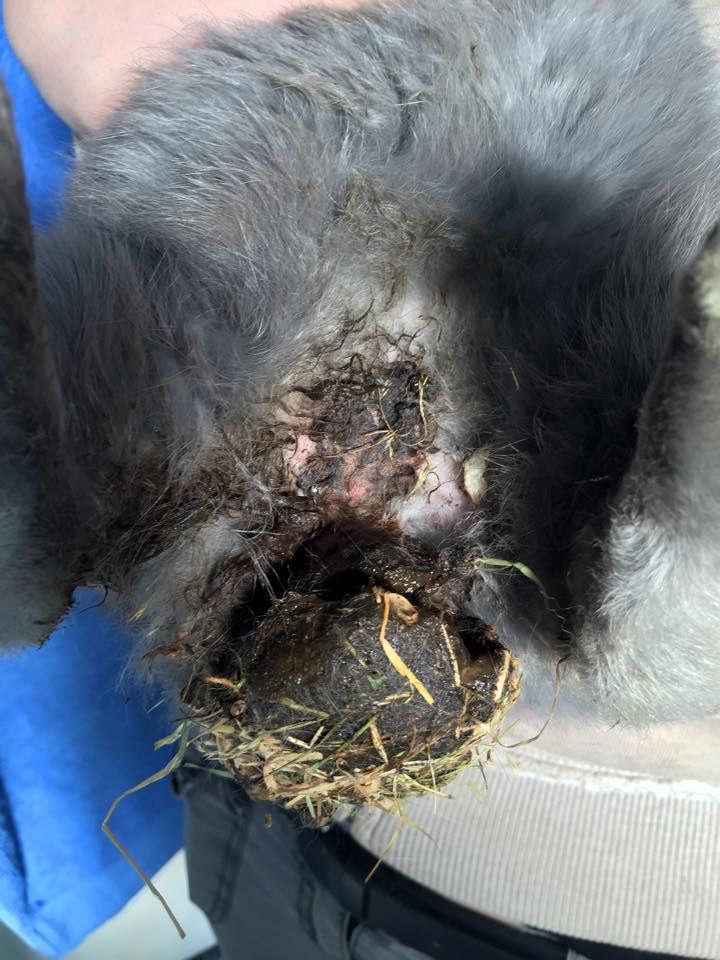Flystrike is common in warmer weather and can kill rabbits very quickly. This blog will tell you all you need to know about fly-strike and how to prevent it.
What is fly-strike?
Fly-strike (or myiasis to give it the proper name) is common in the warm weather and is when flies lay eggs on your rabbit. The eggs hatch in a few hours to maggots, and the maggots will eat the rabbit’s flesh.
Flystrike is a medical emergency and any animals suspected to have it must see a vet immediately.
Does it only affect rabbits?
Flystrike can affect any animal but is common in rabbits because rabbits are popular pets and most pet bunnies are kept outdoors (although indoor rabbits can get it too!) Guinea pigs are also at risk.
How do I know if my rabbit has flystrike?
You should be checking your rabbit’s at least twice a day for signs of flystrike. Put one hand under your rabbit’s chest and the other hand under their bottom and lift your rabbit gently upwards so you can see their bottom.
Eggs resemble grains of rice and maggots look like white worms. If the flystrike is advanced, you may see open wounds too. If you notice any of these on your bunny, do not wash them off, dampening the fur makes it harder for your vet to treat. All you need to do is call your vet and take your rabbit in to see them right away.

Why do flies lay their eggs on rabbits?
The flies are attracted to poop and the warm skin of the rabbits is perfect for the eggs to grow. Not only that but when they hatch, they have a food source which is, unfortunately, your rabbit.
Are some rabbits more prone to flystrike than others?
Overweight, elderly and arthritic rabbits are more prone to flystrike because they will have a harder time cleaning themselves, however, any rabbit can get it, which is why it’s so important to check your rabbit twice a day and use a fly deterrent.

How do I prevent flystrike?
Rabbits are generally clean animals and will favour toileting in one area, which is why they are so easy to litter tray train. To litter train your bunny, look at which corner your rabbit naturally uses and place a litter tray there with litter in. Any stray poops that don’t end up in the box, sweep up and place in the box so your rabbit learns where to go. Adult rabbits tend to get the hang of it pretty quickly, but babies can take some time so persevere! Litter training them will make it much easier for you to keep their living area clean, you just need to change the litter box when it’s soiled.
If you are struggling to get your bunny to use a litter tray, put some hay in or next to the litter box to encourage them to use it more. Rabbits love to eat and poop so they should naturally use it if there is a food incentive.
Rabbits produce two types of poop – there are the little brown balls that look like Nesquick cereal (sorry) and they also produce a softer one called caecotrophs which is full of nutrients and your rabbit will actually eat this poop to digest it again (yuck).
Your bunny will usually eat the caecotrophs straight from their butt, but some rabbits are unable to do this – such as overweight or arthritic bunnies and so the poop gets stuck around their bottom – this is what attracts the flies.
If your bunny has a messy back end, you can use a gentle shampoo (I use baby shampoo) and hold them over a sink to wash them. Never submerge your rabbit in water as this will frighten them. If your rabbit regularly gets a messy back end, you should get them checked over by your vet as there could be an underlying problem.
As well as keeping your bunny clean, use fly deterrents around their home. Lavender plants are a natural fly deterrent, and flypaper, fly net, bug bags and fly zappers can all reduce fly numbers. Open bodies of water, like ponds or paddling pools, attract flies too, so put the kid’s pool away once they are finished playing with it.
There are also lots of fly sprays on the market that can be directly sprayed on your rabbit. Check the manufacturer’s guidelines on how to use them and how often you need to apply them to ensure they stay effective. I have used this brand once a week for many years with success.


